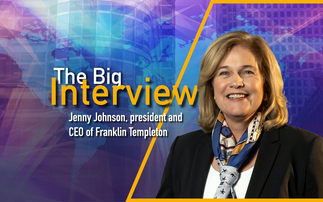The unpredictable nature of US President Trump’s tweets has created a level of uncertainty in financial markets that hasn’t been seen for quite some time.
Economic growth forecasts have been lowered, central banks have begun cutting rates and financial markets have started to price in longer-term stress. The inversion of the yield curve in many countries, traditionally regarded as a recessionary indicator, has spooked some market participants.
Equity markets have dipped sharply from record highs, and although we are nowhere near panic selling yet, continued negative sentiment could easily create a downward spiral as momentum factors take over from fundamental valuations. In such an environment, dividend-paying stocks become arguably more attractive, particularly when the strategy emphasizes companies characterized by strong fundamentals which in turn means that payments are more likely to be sustained (and share prices supported) through harsh economic conditions.
BMO's innovative Income Leaders range of ETFs targets ‘quality' yield and offers investment solutions that typically suit this market regime.
The path of the trade war presents a challenge for emerging markets
The US-China trade war could move in several directions, making it difficult to predict the timing and magnitude of actions on either side. A large proportion of emerging market debt and trade is priced in US dollars so the US Federal Reserve's actions are an important consideration, and political uncertainty can offset the higher growth expectations for emerging markets. Company fundamentals are paramount in this asset class, especially when global uncertainty increases and the momentum, trend-following investment styles come under scrutiny as valuations become stretched.
Looser monetary policy from the Federal Reserve could be seen as a buying opportunity for emerging markets but their generally higher economic growth expectations could disappoint if global trade tensions feed quickly down supply chains.
Core Europe causing concern
Europe's largest economy, Germany, has been caught in the firing line with a drastic slowing of their export market, which led the economy to contract in the second quarter. Demand has plunged, with orders at factories dropping at the fastest pace in six years according to the Purchasing Managers' Index. This may well lead to the European Central Bank (ECB) cutting interest rates at their next meeting in September into negative territory. This is worrying, as this policy tool of cutting rates, which the ECB embarked upon back in 2011, was only ever meant to be a temporary measure. This policy stance creates the potential to hoard cash and gold, and if the US pushes ahead with the proposed tariffs on EU car exports, it will be a challenging time for Europe, especially with the increasing prospect of a no-deal Brexit.
So how can uncertainty be managed in financial markets?
Other than the usual safety of cash, US Treasuries and gold, most other asset classes face challenges. The demand for yield is ever present with an ageing population in developed markets meaning a structural demographic demand for income as a higher percentage of market participants requires a yield to cover their lifestyle requirements. Income-based equity is an obvious area to target, and combining this with a quality screen can produce a product with a greater chance of filtering out ‘yield traps'.
Our Income Leaders suite is designed to focus on robust companies with fundamentally stable earnings, low leverage and high profitability with regards to return on equity (ROE). These factors combined with a market cap weighting scheme ensure relatively good liquidity. Over the majority of time periods, this quality tilt typically reduces volatility and is also likely to limit drawdowns in times of market stress when a flight to safety sees companies with a stable business model being sought after.
Consider your currency
Currency hedging is also a key consideration and the cost of hedging, often regarded as the interest rate differential, should be less of a factor given the rising volatility and potential drawdowns. The binary outcome for Brexit, with increasing concerns about a no-deal exit or even a general election, makes predicting the strength of GBP particularly challenging.
Cautiously capturing income
For almost all asset classes, these are challenging times with bleak prospects. But many investors still need to receive an income, a challenge in itself, without the extra challenge of not taking on more risk than you can comfortably afford. Our Income Leaders range targets income but with a cautious approach, which could provide income-seeking investors with a much needed buffer in these uncertain times.
For more information on BMO Global Asset Management's range of ETFs, visit our website.
About the author
Terry Wood joined BMO Global Asset Management in August 2007 as a Quantitative Portfolio Manager covering both passive and active funds. Previously Terry spent nine years at Deutsche Asset Management as a Quantitative Analyst for the Global Equity team.
Terry holds BA (Hons) in Accounting & Finance from the University of Kent and is a CFA Charterholder.
Capital is at risk and investors may not get back the original amount invested.
Shares purchased on the secondary market cannot usually be sold directly back to the Fund. Secondary market investors must buy and sell ETF Shares with the assistance of an intermediary (e.g. a stockbroker) and may incur fees for doing so. In addition, investors may pay more than the current Net Asset Value per Share when buying ETF Shares and may receive less than the current Net Asset Value per Share when selling them.
©2019 BMO Global Asset Management. Financial promotions are issued for marketing and information purposes in the United Kingdom by BMO Asset Management Limited, which is authorised and regulated by the Financial Conduct Authority.













